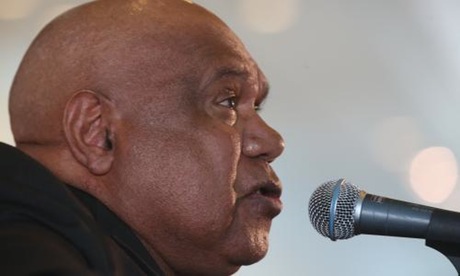
Scores of community-controlled Aboriginal health organisations will have their funding extended for three years, following a tense wait that could have seen hundreds of services cut.
Funding for many community health organisations was due to expire on 30 June.
The federal government on Thursday announced that 112 organisations would have their funding extended until June 2018. Only one health organisation missed out on an extension.
“This funding reaffirms the Abbott government’s commitment to closing the gap and to meeting the government’s priorities of getting Indigenous Australians into work, ensuring children go to school and making communities safer,” the health minister, Sussan Ley, said.
Extending the funding for the 112 organisations will cost the government $1.4bn, as part of a $3.1bn funding envelope for Indigenous health over the next four years.
“[That is an] increase of over $500m when compared with the previous four years,” Ley said.
The assistant health minister, Fiona Nash, said: “The Aboriginal community-controlled health organisations play a unique and vital role in our efforts to close the gap in health outcomes through working with communities to improve access for Indigenous families to primary or preventative health care.”
The National Aboriginal Community Controlled Health Organisation (Naccho) welcomed the funding certainty, but wants clarity on the fate of other federal programs.
“Funding for specific health programs under the Closing the Gap Indigenous chronic disease package still remain uncertain with some set to cease at the end of March 2015,” the Naccho chair, Matthew Cooke, said.
“We look forward to hearing more from the government in the near future on these important initiatives.”
Labor cautiously welcomed the announcement, but the opposition’s Indigenous affairs spokesman, Shayne Neumann, told Guardian Australia he would be looking carefully at the detail.
Many organisations had warned that failing to secure funding could mean the loss of vital primary care services.
“These programs are often built up by people who often put in extraordinary amounts of work and have an enormous amount of experience,” the head of the Australian medical association, Brian Owler, said. “It’s hard to get those programs established and they can be struck out with a bureaucrat’s pen.”
“You can’t just re-establish them. It takes dedication and hard work to get those programs up and running again,” he said.
More than 100 health organisations have pledged their support to constitutional recognition, saying that there is a strong link between identity and health.
“Recognition, participation and equity have profound positive consequences for wellbeing,” the chief executive of the Lowitja Institute, Romlie Mokak , said. “There is significant evidence from health research to indicate that being connected to the wider community, having a strong identity and feeling socially supported, all have positive impacts on health.”
Veteran performer Archie Roach offered a personal perspective.
“What it is really about is how we see ourselves and how we feel about ourselves as people, Roach said. “Because for too long, since I was a kid, growing up, ending up on the street, I was told that I was lazy, no good, worthless, black.”
“And when you’re told this long enough, you start to believe it. And it destroys you inside, in your head, in your mind. So that is why it is so important that we are recognised within the constitution of this country as the first peoples.”
Cooke agreed. “Constitutional recognition would certainly form one of the biggest parts of the healing journey for Aboriginal and Torres Strait Islanders being recognised in Australia’s highest legal document, the constitution and that would be a strong platform for the true spirit of reconciliation.”
Representatives from some of the 117 health organisations that signed up to the pledge met in Parliament House on Thursday. Roach performed for the audience.
Nash and the opposition leader, Bill Shorten, were among the MPs and senators who attended the event.
The annual Closing the Gap report released last month showed little improvement in health outcomes for Indigenous Australians, who die younger than non-Indigenous Australians and suffer greater rates of disability and chronic disease.
The prime minister, Tony Abbott, has vowed to hold a constitutional referendum on recognition in 2017, to coincide with the 50th anniversary of the 1967 referendum on Indigenous people being included in the census.
